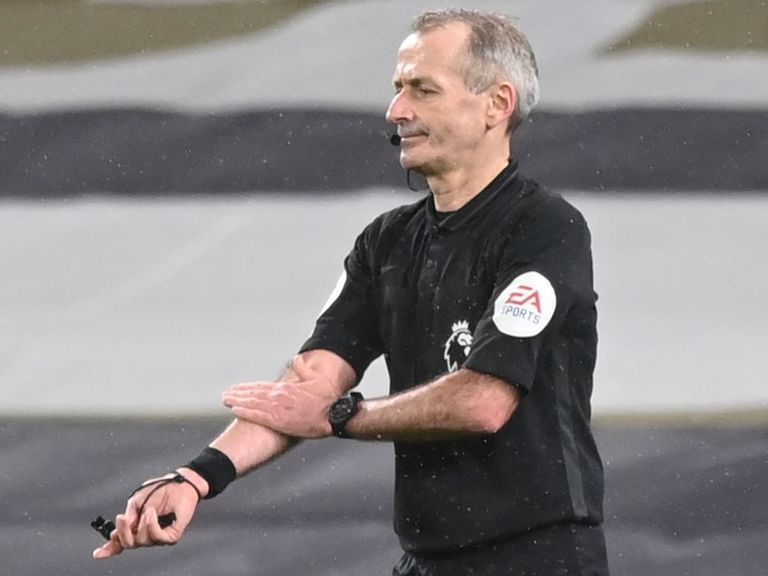IFAB relaxes handball rule, considers 'adaptions' to offside law

The International Football Association Board agreed Friday to relax a controversial rule that wiped out any goal scored after an accidental handball.
Previously, a player on the attack who was judged to have handled the ball, whether deliberately or not, was penalized and any goal that followed the incident was disallowed.
“Accidental handball that leads to a teammate scoring a goal or having a goalscoring opportunity will no longer be considered an offense,” the IFAB said in a statement after holding its annual general meeting.
The rule change will officially come into effect July 1, but leagues have the option of introducing the change earlier.
Just a day earlier, Fulham fumed over a disallowed goal that, under the current rule, would now stand. After striker Josh Maja scored what he believed to be the equalizer in Thursday’s tight Premier League encounter with Tottenham Hotspur, the video assistant referee determined Maja’s teammate, midfielder Mario Lemina, had committed a handball in the buildup. However, Lemina made no deliberate action toward the ball, keeping his arm by his side as Tottenham defender Davinson Sanchez attempted to clear the area.
Josh Maja thought he had scored his first Fulham goal at Craven Cottage!
But VAR intervened after Mario Lemina had handled the ball ?
? BT Sport 1 HD & Ultimate pic.twitter.com/cQMhkN9yMK
— Football on BT Sport (@btsportfootball) March 4, 2021
Fulham manager Scott Parker called for “common sense” after the eventual 1-0 loss, which could make a difference in the club’s fight against relegation. The Cottagers are three points from safety in 18th place.
“It is the rule. I think it’s crazy,” Parker told BBC Radio 5 Live. “I’m complaining (about) the rule. We want it to be the most entertaining league in the world, with goals. I don’t know what (Lemina) can do. We just need common sense. We are trying to make football so pure and sterile, it becomes unrealistic.”
The accidental handball rule was one of several points on the agenda during IFAB’s meeting. The decision to adapt the law was not made in direct response to the controversy at Fulham.
Referees will continue to use their judgement when players touch the ball while making their body “unnaturally bigger.”
The IFAB also confirmed it is reviewing “potential adaptions to the offside law” with FIFA. Currently, a player is considered offside if any part of his or her body stretches past the last defender, including the arm up to the bottom of the armpit.




